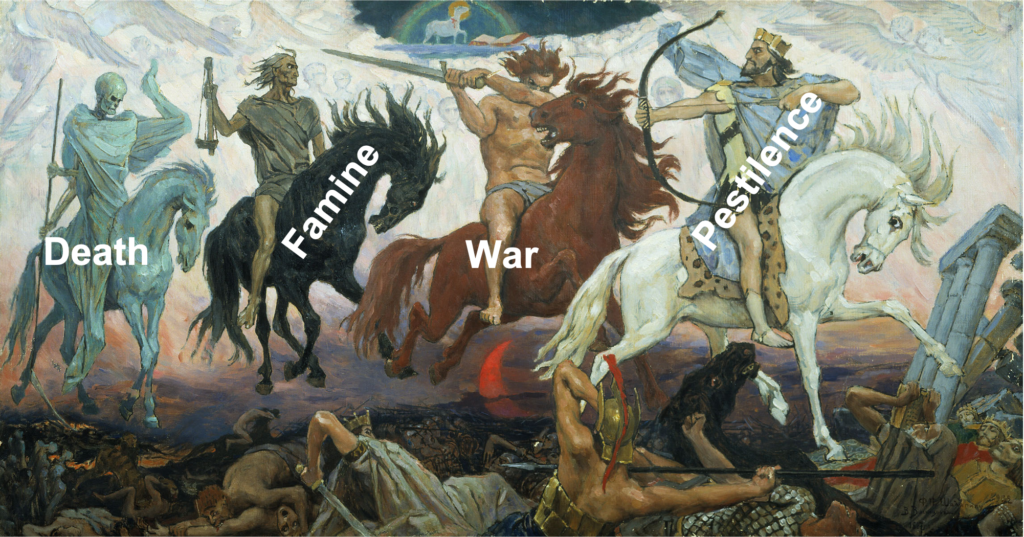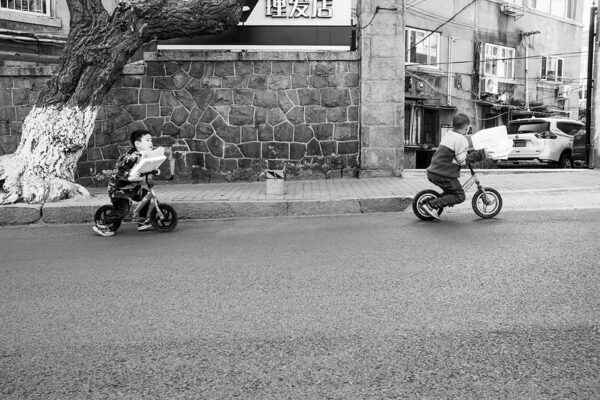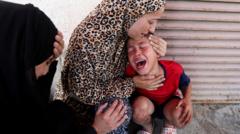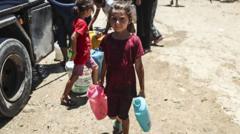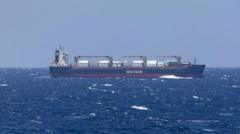Croatian real estate investment
Croatia snapshot

- Latest EU member, with a unique location and proximity to major European countries
- Croatian currency kuna (HRK) has been relatively stable for the past 10 years: 7.2 to 7.7 for EUR (current ±7.5), with a direct ECB exchange for €2bil+ HRK
- Croatian inflation is largely EU-linked like the currency for the past 10 years: -2 to 5% (current ±1%)
- Latest rating (Apr 01 2020) by Fitch BBB- / stable and a 10yr government bond at a 1.2% yield
- GDP per capital of almost $30k (2019, PPP) is ranking it alongside Romania & Turkey, albeit at a much lower population of 4.2mil
- GDP growth 2.9% (2019/18), with a likely corona-induced fall by 10%+ (2020) mostly due to its over-dependence on tourism (20%+ direct GDP contribution)
- The European Commission has issued corona-affected forecasts for its members in the Eurozone and those outside, whereby Croatia should see a relatively quick recovery:

- Although not very active, its stock exchange, ZSE is relatively large a proportion of its GDP compared to some peers:

Source: EBRD, Property & Tourism Sector Strategy 2020 – 2024
Traditional tourist visitors
- Preserved nature and a coastline featuring 1,200 islands, with history and culture dating back to Roman times, featuring 2,600 hours of sun annually
- A large number of beds (1mil) on offer of which 60% in private accommodation: with 75% of guests still driving to their destination, 67% visitors arrange their trips independently, while the same number return to Croatia at least once
- About 20 million tourists spent almost 100 million tourist nights in 2019- of which 87% were international arrivals

Source: EBRD, Property & Tourism Sector Strategy 2020 – 2024
Zagreb snapshot

- Since the EU entry, Zagreb has come on the international visitor map (±3mil in 2019), with consistent annual growth rates between 20 to 30%
- An approximate ±400km drive to Vienna, Budapest, Venice & Belgrade
- Zagreb is Croatia’s capital & major commercial centre; also the city with most 5* hotels in Croatia
- Its population is estimated at 850k, at a population density of 1,250 pop/km²
- The planned Zagreb city budget for 2020 was at €1.6bil, with its citizens raking in €1k average monthly salaries (17% higher than the nationwide average)
Corona note
Initially, Croatia was praised as for some of the best responses in Europe, according to the infections and mortality per capital: this was due to some of the most restrictive lockdown measures and phasing in/out restrictions. However, the approach changed with the summer and the reliance on tourism kicking in… The numbers increased, and the verdict is still out there on how Croatia (like many other) will fare..?
Zagreb’s Real Estate Market
Just a year before the corona-crisis hit Croatia: “There is something brewing in Zagreb, the capital of Croatia, and it has all the signs of reaching a tipping point in the next few years to see explosive growth” (Forbes).
The graphicons should show that 2015 was the year when the Zagreb real estate market bottomed out, and that is where we expect the conditional post-corona recovery to start in about 18 months from now…
Investment market:
And only a month before the crisis, Colliers reports average Croatian prime yields:
- Office Yield 7.5%
- Retail Yield 7.0%
- Industrial/Logistics Yield 8.0%
- Hotel Yield 6.5%
A custom proprietary high-street study of Zagreb, combining traffic activity (google rush hour, city parking & busy crossings), with commercial activity (telecom LTE coverage & top locations for companies), and with residential activity (density & prices), would suggest a kite-shaped area (+/-) as the best high-street general commercial locations:

Legend: # residential density rank , ![]() top company locations ,
top company locations , ![]() busy crossings
busy crossings
A growing trend: COMMERCIAL (CRE) INVESTMENT TRANSACTION VOLUMES

Colliers
Residential not in focus of investors: SECTOR CRE TRANSACTION VOLUMES (Colliers):
- Hotels … 64%
- Office … 20%
- Retail … 12%
- Industrial … 5%
Despite the Adriatic hotel investment focus, Zagreb takes a chunk of the Croatian property investments: CRE TRANSACTION VOLUMES (Colliers):
- Istra / Kvarner … 46%
- Zagreb … 30%
- Dalmatia … 17%
- Dubrovnik .. 6%
- Other … 1%
Residential market:
Unlike say in Germany, a large proportion of Croatian citizens own their own property, and even a second home on the seaside or countryside; in a ‘rentier-type economy’ it is perceived as the best investment. Yet the internal urban migrations and foreign visitors still allow the residential market to be active. Since Croatia’s EU entry, short-term lease to foreigners was the main market driver in mainland; for example over ten years, Booking Com Zagreb apartment listings increased from less than 200 to over 4,000.
Steady growth: # OF APARTMENT TRANSACTIONS IN ZAGREB VS. CROATIA

Colliers
New residential constructs are facing special & permit constraints:

Colliers
According to the Croatian Bureau of Statistics, the house price index in Zagreb, increased by 8.5% (7.5% inflation-adjusted) in 2018, with the average price of new dwellings in Zagreb, which accounts for more than 45% of all sales transactions in the country, stood at €1,712 per square metre in 2018.
Just about managed to return to the 2008 pre-crisis levels: RESIDENTIAL PRICE INDEX (end-2015 base = 100):

Colliers
On the other hand, mortgages were largely stable (majority EUR-linked), but of decreasing significance to the overall economy:

Our conclusion is that depending on the length and cyclicality of the newly induced corona-crisis, we are likely to see a few years of a residential market dip before the market recovers in terms of sales to its 2019 levels.
As for the yield computations, the issue is more complicated, since these range from as low as 2% to as high as 7% depending whom you ask; and this is mostly due to a large municipal / government / protected stock of residential properties from the socialist past and the huge spectrum of quality differences.
In addition, the Croatian obsession with owning a flat and a relatively old population demographic, has a lot to do with the residential property market, making it rather illiquid – i.e. the old stock is not for sale at what would be yield-wise bankable transactions, so the demand for the newly built is disproportionately higher than the supply.
Finally, the recent Zagreb earthquake further strengthens the demand for new-build residential property at 7’Richter+ resistance. E.g. even with quarantine measures the combined effect of above, makes certain new residential projects rack in €4,000/m2 (more than double compared to the average rate of 1,712/m2 of 2018), and that is even before the project development has started.
Office space:
Zagreb office rental varies widely: KEY FIGURES & NET EFFECTIVE RENTS (Colliers):
- Total stock in sqm … 1.4mil
- Vacancy rate … 4-5%
- Average prime monthly rate … €14-15 per sqm
- Average A-class monthly rate … €12.5 per sqm
- Average B&C-class monthly rate … €7-10 per sqm
On the supply side, things look rather similar to the residential market:

Vacancies were low and probably non-existent pre-corona in the prime space:

Colliers
While the prime office space yields of 7.5% and net rents of €15/m2 will not be sustainable in the short-term, we figure that Zagreb is likely to go back in time to the economic cycle where new office project developments may have yielded the best historical investment returns in CEE (not necessarily to where Zagreb was at the time because a lot has changed since and everything is going to reset much quicker, so say to 2015 in Zagreb terms when the market bottomed out by most criteria): OFFICE OCCUPIER CLOCK IN 2012 (2012 Zagreb ≈ 2015 most CEE)

Jones Lang LaSalle, CEE Corporate Occupier Conditions 2012
Retail space:
Only the Romanian capital has more mall square meters per capital than Zagreb in all of CEE:

Zagreb retail rental is primarily evaluated by the shopping centres: KEY FIGURES & NET EFFECTIVE RENTS (Colliers):
- Total stock in sqm … 500k
- Prime shopping centre vacancy rate … <3%
- Prime weighted average monthly rate … €17-21 per sqm
- Average monthly rate … €12 per sqm
The rates Colliers refers to above are a probably an overall average because the three prime malls (say City Centre West, Avenue Mall and Arena Centre) all went for above €40/m2 net of services in 2019 for most of their outlets. So the above average probably in reality includes the high-street prices as well.
Further, taking gross rental yields in Zagreb reported by Global Property Guide- of 5.4% to 6.1%, or those of Colliers mentioned in the CRE investment section above- of 7.0%, this also seems an underestimate since the Austrian and South African buyers in latest, largest transactions seek 9% yields. So either the buyers obtained better prices and leverage terms, or the reporting is inconsistent.
Again nothing to write home about- steady, linear growth: MODERN RETAIL STOCK SUPPLY

Colliers
We believe that the retail space market may be depressed much more and much quicker than the residential and office, but that the time to recover should be shorter. Reasons are numerous including: in the short-term small family outlets on the high-street may close shop creating cheaper overall market supply; business paradigm shifts further to online; corona social distancing measures, etc.
Industrial/logistics space:
For the sake of completeness, according to Colliers International, Zagreb industrial property stock is estimated well above 1mil square meters, with an average prime headline rate for rent of €5.5/m2 and vacancies below 2.5%.
Pricing conclusions:
Assuming no second corona wave or at least not one that invokes significant lockdown given the current preparedness of the health system & better understanding of the virus, the following can be anticipated:
- Higher than average EU economic drop, but a stronger & quicker recovery
- Drop of 10-20% in Zagreb real estate prices in the short-term
- 18 month recovery to where Zagreb was in 2015-16 in the property cycle
- Zagreb New Office Space yields 7.5%+ at price per sqm of €2,500
- Zagreb New Residential Space yields 7.0%+ at price per sqm of €2,300
Although the Croatian property market is far from being developed or liquid as those of say London, Berlin or Geneva- various opportunities do come up often… So if you have a genuine wish to discuss the current opportunities, whether early development projects or existing commercial yielding real estate- please do write us, and we will send you the password to the next section of the Croatian real estate investment theme- which introduces the experts involved:
Theme Related Tracker
- A strong storm hits Split, streets flooded and filled with fallen trees - Telegrafion July 10, 2025
A strong storm hits Split, streets flooded and filled with fallen trees Telegrafi
- Portugal, Spain, Croatia, Greece, Estonia, Mauritius, Georgia, Dubai, Barbados, and Costa Rica Now Offer Digital Nomad Visas to Indian Citizens Seeking Global Remote Work Opportunities - Travel And Tour Worldon July 10, 2025
Portugal, Spain, Croatia, Greece, Estonia, Mauritius, Georgia, Dubai, Barbados, and Costa Rica Now Offer Digital Nomad Visas to Indian Citizens Seeking Global Remote Work Opportunities Travel And Tour World
- Greece and Croatia Set The Bar For Tourism Intensity Across Europe’s Most Popular Regions - Travel And Tour Worldon July 10, 2025
Greece and Croatia Set The Bar For Tourism Intensity Across Europe’s Most Popular Regions Travel And Tour World
- From historic cities to turquoise rimmed beaches, these are the best places to visit in Croatia - 9Travelon July 10, 2025
From historic cities to turquoise rimmed beaches, these are the best places to visit in Croatia 9Travel
- Croatian Tourist Season 2025 Likely to Replicate 2024’s - Total Croatiaon July 10, 2025
Croatian Tourist Season 2025 Likely to Replicate 2024’s Total Croatia
- Greece’s South Aegean Tops Europe in Terms of Tourism Intensity; Adriatic Coast in Croatia Among Top 2023 Destinations - Travel And Tour Worldon July 10, 2025
Greece’s South Aegean Tops Europe in Terms of Tourism Intensity; Adriatic Coast in Croatia Among Top 2023 Destinations Travel And Tour World
- Bad weather hits Croatia, see what people experienced offshore in Split - Telegrafion July 10, 2025
Bad weather hits Croatia, see what people experienced offshore in Split Telegrafi
- Croatia’s ETF Airways Undergoes Management Buy-Out - Aviation Week Networkon July 10, 2025
Croatia’s ETF Airways Undergoes Management Buy-Out Aviation Week Network
- Croatian Classic Vegeta Beats 5,000 Brands to Spice Up Germany’s Taste Buds - The Dubrovnik Timeson July 10, 2025
Croatian Classic Vegeta Beats 5,000 Brands to Spice Up Germany’s Taste Buds The Dubrovnik Times
- Two-Week Break, €1,330 Budget: Most Croatians Staying Local for Summer Holidays - The Dubrovnik Timeson July 10, 2025
Two-Week Break, €1,330 Budget: Most Croatians Staying Local for Summer Holidays The Dubrovnik Times
